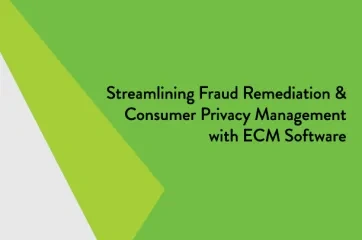Frontline Staff Positions
Frontline staff at a bank or credit union are the “face” of the organization—the employees that interact directly with a financial institution’s customers or members. This includes a wide variety of staff, from front-line tellers cashing a $20 check to lenders working on large commercial loans.
Tellers
Ideally, tellers should have a pleasant personality and be skilled at listening to customers and members, communicating with them, and helping them feel comfortable doing business with the institution. Tellers should be proficient with banking software and efficient in dealing with account holders. It is also beneficial for tellers to become familiar with names and faces to recognize regular customers and members.
The most obvious teller tasks are processing checks and deposits. However, many other duties fall to tellers as well, such as:
- Issuing travelers’ checks and cashier’s checks
- Deactivating lost or stolen credit/debit cards and issuing replacements
- Researching answers to a customer or member’s account questions
- Handling fraudulent activity claims
- Initiating stop payments
- Taking loan payments
- Fulfilling change orders for retail businesses (exchanging paper money for coins)
- Selling products, such as a travel club or Christmas club
Additionally, in some banks and credit unions (especially at branches) tellers may be responsible for opening new accounts. As the first line of defense, tellers are also tasked with flagging potentially illegal behavior and, to that end, filing currency transaction reports (CTRs) and Suspicious Activity Reports (SARs).
Lenders
Lenders generally specialize in one of three areas: consumer loans (for autos), mortgage loans (for single-family homes), or commercial loans (for businesses). Commercial loans are sometimes further split into more specific areas of expertise, such as retail commercial lending. In contrast to pulling credit scores for consumer or mortgage loans, commercial lenders and their teams must gather a variety of necessary information, such as financial statements, and use the data to decide on a commercial loan application.
Loan Assistants
Loan assistants allow lenders to be more efficient and expand their capacity for processing loan applications. Loan assistants can be considered front-line staff because they interact with loan applicants when gathering documents. These bank and credit union employees also perform some back-office tasks, such as processing paperwork and typing loan presentations.
Customer Service Representatives
Some larger financial institutions include customer and member service representatives as additional front-line staff. These employees may perform duties that are usually handled by tellers at small branches. Front-line customer and member service duties may include:
- Opening new checking or savings accounts
- Taking consumer and member loan applications (and then handing off to an underwriter)
- Changing signers on business accounts
- Processing address changes
- Initiating stop payments
- Assisting new customers and members in closing accounts at other banks and credit unions
- Offering notary services
- Working with customers and members who have fraudulent charges on their accounts
- Replacing a debit or credit card
- Reordering checks
Trust Officers
Front-line trust officers work with customers and members to establish and manage one of several kinds of trusts. Depending on the type of trust, a trust officer’s job responsibility can vary from institution to institution:
- Some trust officers work in a fiduciary capacity, acting on behalf of an individual (especially if the person is incapacitated). This may include paying bills and making investment decisions.
- Companies may opt to outsource the management of their employee benefits plans to a bank or credit union’s trust department. Items managed might include profit sharing plans, traditional IRAs, and Roth IRAs.
- Other trust officers manage estate accounts, such as revocable and irrevocable trusts. After the death of a client, the trust officer would likely be responsible for liquidating assets and dispersing funds to beneficiaries.
Bank Management Resources for Your Staff
For more information on customer and account management in the banking industry, be sure to check out our extensive resource library with free spreadsheets, whitepapers, and eBooks.
Browse our banking definitions page for more terminology.














